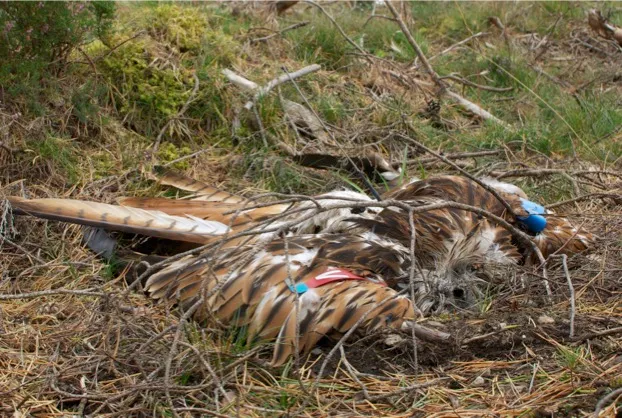Learn more about wildlife crime in the UK, looking at the species affected and ongoing work to protect wildlife.
Pearl mussels
The taking and destruction of freshwater pearl mussels is one of six wildlife crime priorities for enforcement agencies in the UK. They are found in Scotland and can live for 100 years and grow to the size of a human hand. They only occasionally produce pearls, for which they are prized, but population declines have also occurred because of poor water quality.
Deer poaching
Poaching is the most common wildlife crime in the UK. Wildlife taken by poachers includes deer (for both their venison and as trophies – antlers can be sold for hundreds of pounds), hares and fish. It’s reported that a single carp weighing 20kg can be worth £12,000.
Raptor crimes
Of 172 individuals convicted of offences relating to the persecution of birds of prey between 1990 and 2013, 69 per cent were gamekeepers, according to analysis carried out by the RSPB. Of the rest, 7 per cent were taxidermists, 5 per cent pigeon fanciers and 5 per cent had “other game interests”.

One of the most recent cases of mass poisoning involved red kites near Conon Bridge in north-east Scotland. © RSPB Scotland
Use of poisons
Though the use of the pesticide carbofuran has been banned in Europe since 2001 (and in Scotland, it has been a criminal offence to possess it since 2005), it is used in roughly 50 per cent of cases of raptor poisoning in Britain. It is highly toxic – a Scottish gamekeeper found with 10kg of carbofuran was reported to have sufficient quantities to kill every bird of prey in Britain.
Recording regulations
Whaling and breaching EU regulations relating to seal meat, blubber or skins must be recorded as crimes under Home Office rules, despite the fact they are no longer issues here. Most other wildlife crimes do not need to be recorded separately by police forces, making it harder to track trends.
Soft penalties
In 20 years of monitoring crimes against birds of prey, the RSPB says that a convicted criminal has never been given the maximum penalty of either a £5,000 fine or six months in prison. One offender was given a £100 fine for possessing an illegal pesticide (and chastised for “bad housekeeping”), another a £400 fine for shooting a buzzard and having two proscribed poisons. Penalties for badger baiting do not necessarily mean a custodial sentence.
Photographic misdemeanours
Some police forces have noticed an increase in incidents of photographers disturbing birds of prey. While egg collected has diminished, amateurs wanting images of raptors are ignoring regulations governing the birds’ safety and welfare. A man was seen disturbing peregrines in South Devon last year, but was never arrested or charged.
Snares allowed
It is legal to use snares in the UK, but there are regulations governing their use. They can only be set to catch five species: foxes, rabbits, brown hares, grey squirrels and mink, and self-locking snares – ones that will only tighten because of a ratchet – are illegal. Setting a snare with the intention of causing any animal an injury is also an offence.
Find out more
Birders Against Wildlife Crime (BAWC) urges people to always been on the look out for evidence of wildlife crime – its mantra is “Recognise, Record, Report’.
